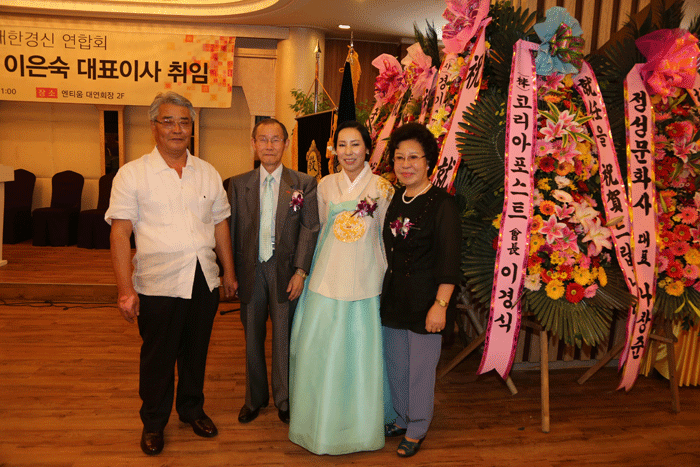Hankuk Minsok Shinmun published by Korean Folk Religious Federation
Newly elected President Ms. Lee Eun-sook of Hankuk Minsok Shinmun (Korea Folk Culture Newspaper) had an augural ceremony at the Crown Hotel in Seoul on Aug. 12, 2015 with the attendance of Chairman Choi Su-jin of Gyeongsin Yeonhap-hoe (Federation of Korean Folk Religious Organizations) and other leading members of the Federation and guests.
Speaking to the guests, President Lee said, “I will do my level best to work for the benefit of 300,000 members of the Federation as well as for the public interest of Korea and the world.”
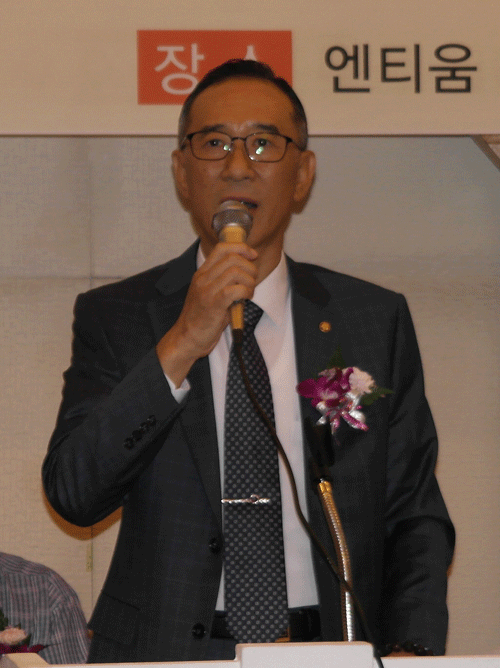
She said that in the process of rapid digitalization of the Korean society there is taking place a lot of serious changes in the way of thinking on the part of the people and that there seems to be some misunderstanding concerning the traditional Korean folk religion in some quarters of the society.
She disclosed that the Korean folk religion is called ‘shamanism’ and that there are some people who call the Korean folk religion ‘superstition’ in spite of the fact that it is an essential part of the traditional culture of the Korean people from ancient times.
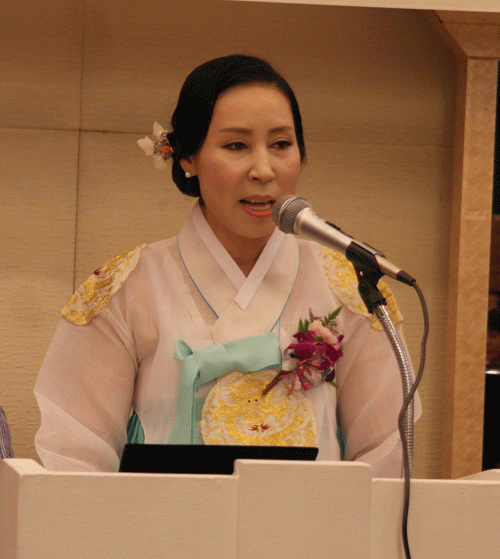
Known as Mugyo (Mu Religion), the traditional Korean folk religion is deeply rooted in the minds of the common people in Korea for thousands of years and even at the Royal Courts of the different dynasties in the past the kings and queens called Mudang (Mu Religion priests) into the Royal Court and hosted prayer meetings for many purposes, including for God’s benevolence for the security and safety of the kingdom and people, for rain in time of famine and for divine assistance in healing and curing the members of the Royal Family when they were not well.
Thus the traditional Korean Mu Religion has a much, much longer history among the Korean people than Buddhism, Christianity, Confucianism or Taoism.
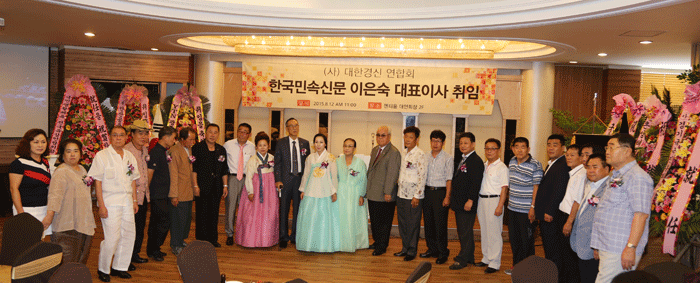
The Mudang in the past also practiced fortunetelling as well as praying for the recovery of health of people suffering from illness, and this practice is still done even today exposing the Mu priests to criticisms from people with different beliefs and religions.
“On the other hand,” said President Lee as if to comment on this situation, “I will devote myself to eliminating whatever room that might exist in the world of traditional Korean folk religious people misleading the people to consider the Korean folk religion as superstition.”
Attending the inaugural meeting that day, among other guests, were representatives of the businenss and socio-cultural leaders as well as the media who incldued Publisher-Chairman Lee Kyung-sik of The Korea Post.
Emceeing the entire ceremony was popular Korean Gagman Bang Il-soo who had a good sense of humor and made the guests feel at home with nice jokes.
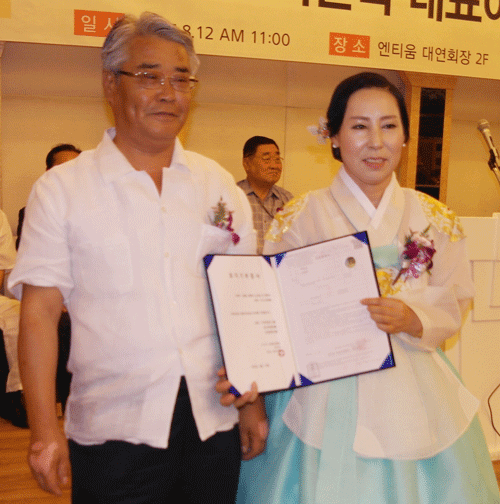
On Mugyo, Wikipedia has adequate information.
Korean shamanism, also known as Muism is the ethnic religion of Korea and the Koreans.
In contemporary Korean language the shaman-priest is known as a Mudang if female or Baksu if male, although other names and locutions are used. The role of Mudang is to act as intermediary between the spirits or gods, and the human plain, through Gut (rituals), seeking to resolve problems in the patterns of development of human life.
Central to the faith is the belief in Haneullim (Heaven or God) or Hwanin (Father of Dangun, progenitor of the Korean people).
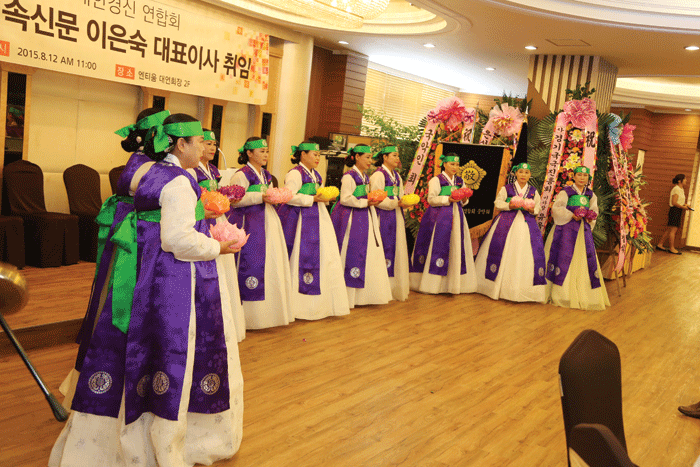
Korean Muism has similarities with Chinese Wuism, Japanese Shinto, and with the Siberian, Mongolian, and Manchurian religious traditions. As highlighted by anthropological studies, the Korean ancestral god Dangun is related to the Ural-Altaic Tengri "Heaven", the shaman and the prince. In some provinces of Korea the shaman is still called Dangul Dangul-ari. Mudang is similar to the Japanese Miko and the Ryukyuan Yuta. Muism has exerted an influence on some Korean new religions, such as Cheondoism. According to various sociological studies, many Christian churches in Korea make use of practices rooted in shamanism.
The Korean word Mu is thought to come from the same root as the Chinese
Wu, defining a shaman-priest of both sexes. The Korean language and culture, however, has developed its own terminology: already in the Joseon Dynasty records, Mudang is used prevalently.
Mudang is mostly used female shamans, though not exclusively. Male Korean Mu practitioners are called by a variety of names such as Baksu.
Mu means "Heaven" and the respect for Heaven. It's a ritual of religious customs from the ancient Korea of Han Nation. Dang is considered as Dangun (King of Dan Nation) or Tenguri (Heavenly King from the Heaven, Hevenly King or God).
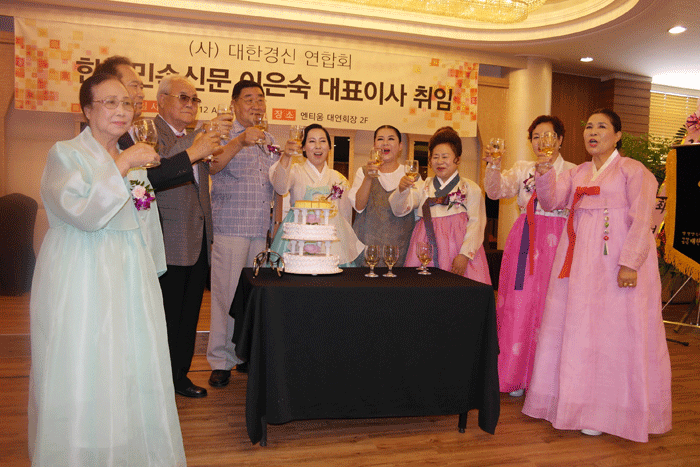
The work of Mu is based on the holistic model, which takes into consideration, not only the whole person, but the individual's interaction with his environment, both his inner and outer world. The soul is considered the place of life breath, where a human's essence (life energy) resides, and any physical illness is inextricably linked with sickness of the soul. Illness of the mind has its origins (root cause) in soul loss, intrusion or possession.
The Gut rites of the Korean Mu, have gone through a number of changes through the Silla and Goryeo periods. Even during the Joseon Dynasty, which was heavily Confucian, Mu rites persisted. In the past such rites included agricultural rites, such as prayers for abundant harvest. With a shift away from agriculture in modern Korea this has largely been lost, and modern-day Mu are more focused on the fulfillment of the spiritual or mundane needs of urban people.
